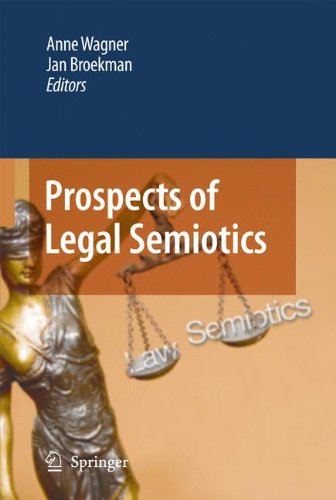

Most ebook files are in PDF format, so you can easily read them using various software such as Foxit Reader or directly on the Google Chrome browser.
Some ebook files are released by publishers in other formats such as .awz, .mobi, .epub, .fb2, etc. You may need to install specific software to read these formats on mobile/PC, such as Calibre.
Please read the tutorial at this link: https://ebookbell.com/faq
We offer FREE conversion to the popular formats you request; however, this may take some time. Therefore, right after payment, please email us, and we will try to provide the service as quickly as possible.
For some exceptional file formats or broken links (if any), please refrain from opening any disputes. Instead, email us first, and we will try to assist within a maximum of 6 hours.
EbookBell Team

4.7
46 reviewsThis book examines the progress to date in the many facets – conceptual, epistemological and methodological - of the field of legal semiotics. It reflects the fulfilment of the promise of legal semiotics when used to explore the law, its processes and interpretation. This study in Legal Semiotics brings together the theory, structure and practice of legal semiotics in an accessible style. The book introduces the concepts of legal semiotics and offers an insight in contemporary and future directions which the semiotics of law is going to take. A theoretical and practical oriented synthesis of the historical, contemporary and most recent ideas pertaining to legal semiotics, the book will be of interest to scholars and researchers in law and social sciences, as well as those who are interested in the interdisciplinary dynamics of law and semiotics. “The dependence of law upon the media of its transmission has long constituted a controversial open border with other disciplines. Prospects of Legal Semiotics takes a radical and expansive view of possible frameworks for addressing the signs of law in an increasingly virtual and predominantly visual epoch of global dissemination. Wagner and Broekman are especially to be commended for the imaginative and rigorous manner in which they have opened legal semiotics to a novel methodological interrogation at the same time as they have encouraged analyses that go beyond the established jurisdiction of law”. Peter GoodrichProfessor of Law, Cardozo School of LawNew York - USA